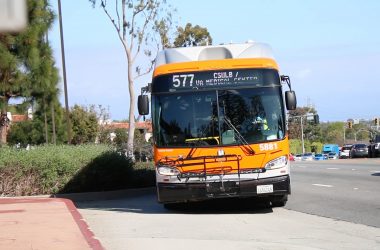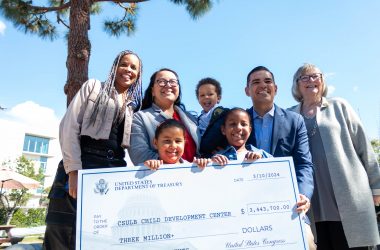In July, Jeff Warner and Tarek Abedrabbo visited the Gaza Strip to help deliver $500,000 in medical aid to the people as members of the group Viva Palestina.
On Monday afternoon, the two spoke at Cal State Long Beach’s Multicultural Center about their journey.
Viva Palestina is an organization comprised of U.S. and U.K. citizens who want to break the siege, deliver medical supplies and humanitarian aid, and get a first-hand look at the conditions people are living in.
The organization formed a convoy dedicated to taking medical, humanitarian supplies into the Gaza Strip during the first few weeks of July. The group plans on going back to deliver more supplies in December.
“A bunch of citizens get together to do something the government is not,” said Warner, an active member of the Los Angeles Jews for Peace.
Israel has built settlements in the Gaza Strip since the Six-Day War in 1967. Israel withdrew settlers and military from the Gaza Strip in 2005. When Hamas won elections and gained political control in 2007, Israel and Egypt closed the borders to the strip. Food, fuel and people are barred from entering or leaving the 140 square-mile territory.
The group arrived in Cairo in early July. It took them nearly two weeks before they had cleared enough bureaucratic loopholes to obtain entrance to the Gaza Strip.
Before entering the territory they were informed that the U.S. government required them to sign a form relinquishing their rights.
“We all agreed it was the worst money we had ever spent,” Abedrabbo said.
Once in the Gaza Strip, the Hamas government hosted them, providing food, lodging, transportation and security. They were also taken on a tour of the war-torn country.
The speakers said American foreign policy and the American media are biased in how they portray the conflict. Abedrabbo said news coverage of Israeli victims of Palestinian violence often report the victims’ names and their families, while Palestinian victims of Israeli violence are often portrayed as unnamed terrorists.
The Washington Report on Middle East Affairs estimates that the U.S. has given more than $113 billion in direct aid to Israel. The majority of this aid has come in the form of military grants.
“I think that the full responsibility of the violence that occurs in the region is on Israel,” said anthropology major Maral Sahebjame, one of the few students in attendance.
Warner encouraged those in attendance to petition the U.S. government to end the siege.
Abedrabbo, a peace activist of Syrian descent, described some of the war horrors he saw.
He met three pre-teen sisters who had lost 48 family members. Their mother, father, aunts, uncles and grandparents were all dead.
Abedrabbo also met a man who lost his daughter during one of Israel’s attacks. The man sat with his daughter at home when a stray bullet shattered the window and lodged into her head. He called for an ambulance, but no ambulances were available. He called for the Red Cross, but Israel had barred the Red Cross from entering the Gaza Strip during the attack.
The daughter lived like that for four days. On the fourth day, she bled to death. Her father buried her on his property that day as best as he could. Later that night he looked outside to see his daughter’s corpse being eaten by dogs, yet could not go outside because bombs were still falling.
“I have friends here who lose their cell phone,” Abedrabbo said, “and they have to take anti-depressants for a week.”
He was surprised by how easily he got along with the Palestinian people.
“These people were no different than any of you guys,” he told the small crowd.



